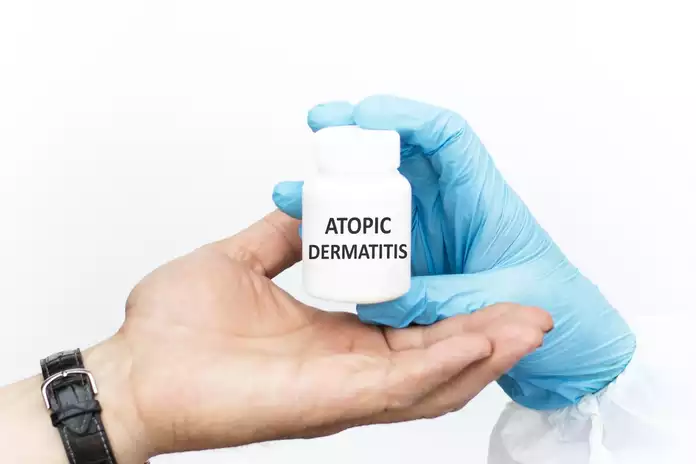Treatment of Atopic Dermatitis

Many treatment options are available to help manage the symptoms of atopic dermatitis. These include; (5)
Atopic Dermatitis Medications
While this condition has no cure, several treatment options are available to manage symptoms effectively. Medication is one of the most sought-after treatments for atopic dermatitis.
- Topical Medications: Topical medications can help manage the symptoms and prevent further damage to the skin. These prescription creams and ointments of corticosteroids reduce inflammation in the affected areas of the skin. They are typically applied once or twice daily for a few weeks. Side effects may include skin thinning or discoloration, so following your doctor’s instructions carefully when using these medications is important.
- Drugs to fight infection: Antibiotics effectively reduce the number of bacteria on the skin, which can help reduce inflammation and improve symptoms. Antibiotics can also prevent infections from developing in areas where the skin has become damaged or broken.
- Antiinflammatory medications: Several pills can help control inflammation and reduce symptoms of atopic dermatitis. These pills work by blocking specific pathways involved in the inflammatory response, such as cytokines or leukotrienes. Some examples of these medications include corticosteroids like prednisone or dexamethasone, nonsteroidal anti-inflammatory drugs (NSAIDs) like aspirin or ibuprofen, and biologics like dupilumab.
- Injectable biologics: One promising new approach to treating atopic dermatitis involves injectable biologics. These medications target certain immune proteins that contribute to inflammation and itching in the skin. By blocking these proteins, injectable biologics can help reduce the severity of atopic dermatitis symptoms and improve the quality of life for patients. (6)
Several different types of injectable biologics are currently being studied as potential treatments for atopic dermatitis, including dupilumab and tralokinumab.

